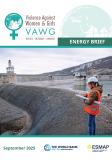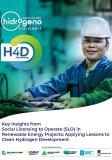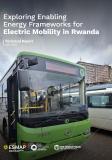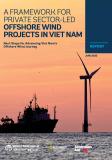Publications
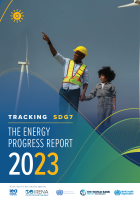
The 2023 edition of The Energy Progress Report alerts that the world is not on track to achieve the global quest for the key energy targets on time. Although policy responses to the continued impacts of COVID-19 compounded by the global energy crisis related to the war in Ukraine are expected to improve the outlook for renewables and energy efficiency, the other aspects, such as international public finance, continue to lag. The report also estimates that about 660 million people will remain without access to electricity and 1.9 billion people without clean cooking in 2030 at the current pace.
Tracking SDG7: The Energy Progress Report provides the international community with a global dashboard to register progress on the targets of Sustainable Development Goal 7 (SDG7): ensuring universal energy access, doubling progress on energy efficiency, substantially increasing the share of renewable energy, and enhance international cooperation to facilitate access to clean and renewable energy by 2030. It assesses the progress made by each country on these targets and provides a snapshot of how far we are from achieving SDG7. The report is a joint effort of the International Energy Agency (IEA), the International Renewable Energy Agency (IRENA), United Nations Statistics Division (UNSD), the World Bank, and the World Health Organization (WHO), responsible for collecting and reporting on country-by-country energy indicators for reporting on SDG7. The 2023 release is the seventh edition of this report, which was formerly known as the Global Tracking Framework (GTF).
Press release: English | Arabic | Chinese | French | Spanish | Russian
More information: Video | Energy Data and Analytics Hub | Energydata.info
